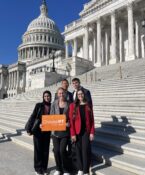HSC expert warns of possible increase in West Nile virus human cases
By Diane Smith
West Nile virus activities in this year’s mosquito population are higher than 2016 when Tarrant County experienced 27 West Nile Neuroinvasive Disease cases, said Joon-Hak Lee, PhD, Associate Professor of Biostatistics and Epidemiology at The University of North Texas Health Science Center at Fort Worth.
West Nile virus activities in the mosquito population are currently higher than 2015 or 2016 when Tarrant County had 26 and 27 serious cases respectively, Dr. Lee said.
In 2016, there were 27 cases of West Nile Neuroinvasive Disease (WNND) in Tarrant County. Those cases are a severe form of the disease that requires hospitalization and sometimes causes death, Dr. Lee said. At the time, the estimated number of West Nile virus infections was about 6,600.
Dr. Lee said many of the people infected were asymptomatic while others experienced mild symptoms.
Dr. Lee, who is monitoring the West Nile virus and COVID-19 as part of a continuing collaboration with the City of Fort Worth, warns that key indicators point to a possible increase in West Nile virus infections this year.
The first West Nile virus human case and death of the 2020 season was reported by Tarrant County on July 21. Ground spraying against the virus is underway.
Dr. Lee said his team has recorded many mosquito samples that are positive with the West Nile virus, which indicates an active transmission within the natural maintenance cycle between avian hosts and mosquitoes. Thus, it is more likely to have an increased number of human cases when compared to 2017, 2018 or 2019.
Dr. Lee said Tarrant County currently has recorded higher West Nile virus activities in the northeast quadrant of the county.
Dr. Lee and School of Public Health graduate students work with the City of Fort Worth throughout the summer to collect and analyze mosquitoes from dozens of residential areas and parks.
This year, due to the pandemic, sampling collections have been modified to minimize the potential risk of exposure to COVID-19.
Additionally, Dr. Lee has been voluntarily working with the City of Fort Worth to monitor COVID-19 in Tarrant and Dallas counties and providing recommendations. He has a unique understanding of public health concerns as the two diseases converge in the community.
“Texas has been putting its full attention and its resources to fight COVID-19 and yet, it still does not see an end to this pandemic,” Dr. Lee said. “West Nile virus is endemic in the Dallas-Fort Worth area and not an emerging disease. The West Nile virus management system we have been using has to be modified to accommodate the needs to fight COVID-19.”
Dr. Lee said local governments must continue to monitor the West Nile virus even as they fight COVID-19, which is a critical public health concern because of its high level of transmission.
Dr. Lee said West Nile virus prevention and control depends on personal efforts by individuals to minimize the risk of exposure.
West Nile is a virus most commonly spread to people by mosquito bites. Most infected people do not have symptoms, according to the U.S. Centers for Disease Control and Prevention. About one out of 50 infected people develop a fever and other symptoms. About one out of 150 infected people develop a serious and potentially fatal illness.
Tips to protect against West Nile virus:
Avoid being outdoors for extended periods of time between 8 p.m. and 2 a.m., when mosquito activity is highest.
Cover arms and legs while outside, and spray DEET insect repellant on shirts and clothing before you head outdoors.
Eliminate standing water in areas within yards and neighborhoods.
For added protection of children, spray insect repellant on your own hands first and then rub products onto children’s skin and/or clothing.
Be aware that mosquitoes thrive in lush, leafy, high-vegetation areas, even those that are well maintained. Trees, flowers, watered lawns and back yards all can attract mosquitoes.
Keep lighting to a minimum if outside at night to avoid attracting mosquitoes.
Citronella candles are safe to use but not always effective in preventing mosquito bites.
The elderly and those with weakened immune systems should use caution, as they can be particularly susceptible to the West Nile virus.






Social media